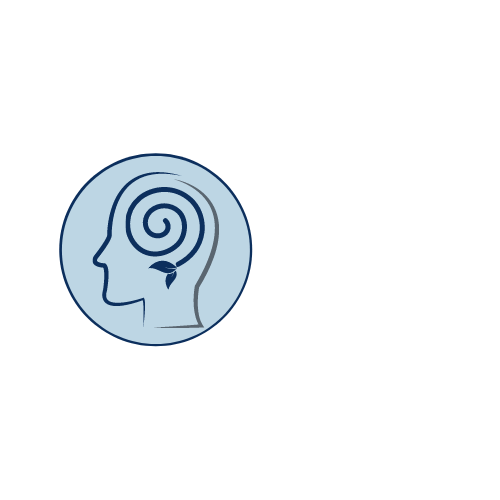Why Is Sleep Important? The Power of Dreaming
Why Sleep is Important: The Power of Dreaming
Have you ever been pondering over a problem? Been annoyed, upset, and someone has said to you, go to sleep and you will wake up in the morning feeling better and thinking more clearly? I know I have a lot, and often thought this was just an old wives' tale, until I learnt about the importance of sleep and the power of dreaming for our mindset and management of our emotions.
So why is sleep important?
To understand the importance of sleep for our mindset, the first thing we must know about is what happens to all of our negative thoughts and experiences throughout the day that causes us to feel angry, sad, scared, and stressed. A great way to visualise this is to imagine your mind as a bucket. Every time we have a negative thought or experience, for example arguing with a colleague, friend, or family member, or think negatively about ourselves, this thought or experience goes into the bucket. Similar to a bucket, if we pour more water into it, it fills up, the more negative thoughts or experiences we have, the more our stress bucket fills up and holds more emotions which can cause us to feel increasingly sad, irritable, angry, and anxious, or stressed. Most of us know this as the stress bucket.
Now you’re probably thinking one of two things; how does this have any correlation with the importance of sleep, and how do I empty my stress bucket.
When we sleep, we go through many different stages of sleep during our cycle, with the most pivotal sleep cycle for supporting our mindset being REM sleep, Rapid Eye Movement.
REM helps you to process your emotions
REM sleep targets our stress bucket. You can imagine the REM sleep process as the tool that pierces holes into your stress bucket. During REM, your mind processes all of your negative thoughts and experiences throughout the day. REM sleep achieves this by allowing all the negative thoughts/experiences and associated emotions to flow out of the bucket, pushing these up to your intellectual mind. Your intellectual mind, also known as the left pre-frontal cortex, is the part which allows you to analyse your thoughts based on the objectives of a situation or experience, therefore allowing for logical and rational thinking. Like a doctor would review your symptoms, medical history, and results before coming to a diagnosis, your intellectual mind is the part of your mind that effectively problem solves these thoughts and experiences so we can gain clarity and identify the best way to respond. Most importantly, this process helps you defuse the emotional attachment you hold, supports clarity in your thinking and frees your mind from the burden of anger, sadness, or fear impacting your well-being.
A great way to visualise this, and I am sure this is a situation we have all been in, is to imagine you are at work and your boss or a colleague is repeatedly asking you to do something or makes a remark which annoys or upsets you. You go home that night, tell your friend, partner, mother, or father, and they tell you to 'let it go' or say 'it is not worth it’ but you are still really upset or annoyed. You go to bed, have a good sleep, and go through your REM sleep cycles. During REM, you will move this experience from out of your stress bucket up to your intellectual mind. You will defuse the emotional attachment of anger/upset, analyse, and problem-solve the situation, and then wake up in the morning with clarity. No doubt you will either wake up and have completely forgotten about it, because your mind has turned this into a long term memory which signifies the purpose it is not a memory you need to hold on to, or you will think something along the lines of 'it is not worth it.' The best part of REM sleep is it empties your stress bucket and allows you to be free from negativity, so you can start your day feeling and thinking positive.
REM helps you to learn
Any new learning or skills we develop throughout the day, REM sleep helps us to consolidate our learning and motor skills. Each day we make decisions. Whether we act on something or not is based on whether we think it is right or wrong or in line with our interests. During REM, our mind will use a similar process to decide whether it wishes to store and maintain this memory for future use or delete it. When our mind chooses to store the memory, it creates a blueprint of this memory in our mind. For example, how to think, and the motor skills we need to act. The next time we are in the same or a similar situation, it will send this information to our conscious mind, the part of our mind that interacts with the world, to guide our thought, behaviour, and actions.
The Power of Dreaming
You may find at night you replay events that have happened to you like you are watching it back on a television screen, or you may find your dreams are bizarre. Thankfully, there is a reason for this. Dreaming is our mind's way of storing important memories or learning. When we dream it helps our mind to consolidate the new learning, i.e. the motor skills required, how we felt, and what actions we took to support in storing the memory to guide us in future. Dreaming additionally helps us to process our thoughts and feelings concerning the thoughts and experiences we hold in our stress bucket. Sometimes we may replay these situations as they happened, or we may experience bizarre dreams. What we know about our bizarre dreams is that it is our mind's defence mechanism for attempting to process complicated and troubling thoughts and experiences, so we can still process them without them causing distress. Even our bizarre dreams hold meaning and serve a purpose.
How do I know if I am not getting enough REM sleep?
Sleep is pivotal for our mental health and well-being. Sleep ensures we can wake up each day feeling refreshed, calm, positive, and with our stress bucket emptied to take on new challenges the day may present. Unfortunately, we know that is not the case for most. 1 in 3 people suffer from insomnia, and 2 in 3 suffer from disturbed sleep. Here are some key signs to look out for which will show you if you are not effectively using your REM sleep cycles:
You will wake up frequently during the night. Most of us do if we get too hot or cold or need to go to the toilet, but once we have resolved the need will quickly drift back off to sleep. If we wake up because we are overdoing our REM sleep cycles due to the amount of negativity held in our stress bucket, we will wake up suddenly, almost startled, be wide awake, and struggle to get back to sleep.
Alternatively, your mind will be overdoing and tirelessly trying to defuse all the stress in your mind, it will encourage you to sleep more.
Thankfully, there are many ways we can improve our sleep. These include; reviewing your sleep hygiene routine of what you do before you go to sleep, engaging in activities supporting the production of melatonin, our hormone which produces a signal to our mind, that it is time to rest, journaling or engaging in mindfulness-based activities such as meditation or yoga, and a great way to improve your sleep and boost your mindset is trance, also known as hypnosis.
How can Hypnotherapy help me to sleep better?
Hypnosis replicates REM sleep. Surprising I know, but it is true. Both hypnosis and REM increase your alpha brain wave production to aid relaxation, and theta brain wave production allowing creativity and enhancing your ability to problem-solve. During hypnosis, your mind goes into a deep state of relaxation allowing your mind to switch off from what is going on around you, within your environment, and focus on your inner self. This can help you to problem solve something that has been niggling away at you, or particular thoughts or feelings. During hypnosis, your mind replicates the REM state. It can help you start emptying your stress bucket, process memories, and defuse emotions to help boost your mindset. It can help you process, or even create memories and consolidate learning to improve your performance or response in situations. Solution-focused hypnotherapy takes it one step further. Before hypnosis, solution-focused hypnotherapy helps you understand how your mindset functions and identify the solutions helping you overcome barriers. During REM, you can embed this new way of thinking or behaving into your mind to guide your day to day thinking and behaviour. Here provides the science as to why hypnotherapy can help you in so many aspects of your life. Whether that be; managing anxiety, stress, low mood, or anger, improving your motivation, confidence, performance, achieving a goal, conquering fear, and even helping you get a good night’s sleep.
The next time somebody says to you sleep solves everything or, go to bed and you will wake up feeling better, trust them.
28th April 2022

